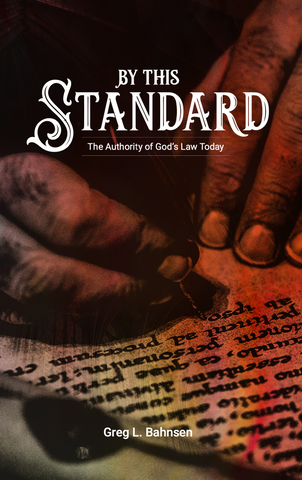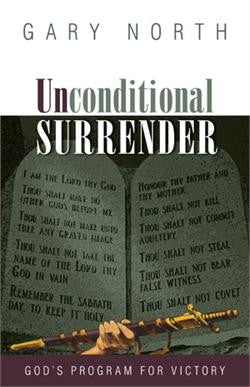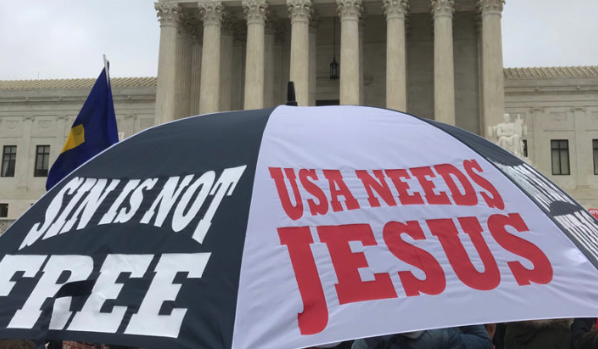The Christian Right got involved in politics late. In fact, they got dragged into the process kicking and screaming. For decades they were told that “religion and politics don’t mix” and “we should only preach the gospel.” That worked at a time when there was something of a general Christian consensus. But those days were long gone by the 1970s with the Roe v. Wade pro-abortion decision that turned out to be a barometer of what had been wrong with America for more than 200 years! There were those who tried to rehabilitate the good old days of prayer in school and a sprinkle of a Bible verse every morning.
The late Francis Schaeffer (1912-1984) pointed out the problem, and millions of Christians listened, read his books, and attended his seminars. He’s nearly forgotten today. There was no lasting legacy. His own son Frank became what his father warned against. Tragic. See my review article of his book Crazy for God. Francis Schaeffer wrote the following in his booklet Art and the Bible:
The lordship of Christ over the whole of life means that there are no platonic areas in Christianity, no dichotomy or hierarchy between the body and soul. God made the body as well as the soul and redemption is for the whole man. Evangelicals have been legitimately criticized for often being so tremendously interested in seeing souls get saved and go to heaven that they have not cared much about the whole man.
The problem is, Francis Schaeffer did not explain how this could be done in the particulars. In fact, because of his premillennial eschatology, he knew it never would be done. His last book, A Christian Manifesto, “offers no prescriptions for a Christian society…. The same comment applies to all of Dr. Schaeffer’s writings: he does not spell out the Christian alternative. He knows that ‘you can’t fight something with nothing,’ but as a premillennialist, he does not expect to win the fight prior to the visible, bodily return of Jesus Christ to earth to establish His millennial kingdom.”[1]
While the works of Dr. Schaeffer are no longer popular, his strategy (if you can call it that) prevails. We know what’s wrong. The wrongness is pointed out every day. What’s the solution? Dr. Schaeffer called for “civil disobedience.” Then what? We are doing battle with Saul’s armor. I did three podcasts in response to some comments made by historian Mark David Hall about Rousas J. Rushdoony, that “almost everyone knows that Rushdoony had almost no influence.” As I point out, Rush had and is having tremendous influence. The thing is, many people who knew of Rushdoony did not want what he was telling them, and it’s come back to haunt us. Schaeffer knew of Rushdoony. So did many other people. But why didn’t they quote him. As North and Chilton point out, “The main reason, we believe, is that Rev. Rushdoony is a theological hot potato. He is a self-proclaimed advocate of Old Testament civil law— ‘theocracy,’…”[2] As I point out in the podcasts, we are living under a secular, materialistic, pagan statist theocracy. Theocracy is an inescapable concept.

By This Standard: The Authority of God's Law Today
God's Law is Christianity's tool of dominion. This is where any discussion of God's law ultimately arrives: the issue of dominion. Ask yourself: Who is to rule on earth, Christ or Satan? Whose followers have the ethically acceptable tool of dominion, Christ's or Satan's? What is this tool of dominion, the Biblically revealed law of God, or the law of self-proclaimed autonomous man? Whose word is sovereign, God's or man's?
Buy NowThe following was written by Dr. Gary North. It serves well as an introduction to my three upcoming podcasts. — Gary DeMar
____________________________
The answer is simple [as to what went wrong with the Christian Right]: The Christian Right has refused to break with the worst assumptions of the pre-Christian Right.
Before discussing what is wrong, we should discuss what is right. What is right is biblical covenant theology.
Biblical Covenant Theology
Covenant theology has five points.
First, God is absolutely sovereign. That is, He has predestinated everything. He is different from the creation, yet He has entered into the creation, above all through the Second Person of the Trinity’s incarnation as Jesus Christ.
Second, God rules in history covenantally, meaning hierarchically and judicially, primarily through mankind. After the Fall of man, God has dealt with redeemed men in a special way, which includes granting to them the lawful authority to impose judgments in history, including civil judgments.
Third, God has revealed His law for mankind in the Bible, though also in nature. Both man and nature are fallen, which places the Bible, God’s word, as the central source for wisdom and ethics. It alone is trustworthy.
Fourth, as the providential sustainer of the universe, God judicially imputes meaning and then brings salvation (healing, deliverance) to individuals, societies, and nature, based on the comprehensive judgment brought against Jesus Christ at Calvary. We are therefore to think God’s thoughts after Him, subordinating our thoughts to the Bible.
Fifth, the New Heavens and New Earth, announced by Isaiah, will progressively replace Satan’s kingdom in history before Jesus comes in final judgment.
To put these points in one sentence, the Bible teaches predestination, theocracy, theonomy, presuppositionalism, and postmillennialism.
Covenant theology is an inescapable concept. It is never a question of covenant theology vs. no covenant theology. It is a question of which covenant theology.
Having summarized the Bible’s doctrine of the covenant, I will now summarize the covenant theology of the pre-Christian Right.
American Covenant Theology
First, God is not absolutely sovereign. Man’s free will acts as a retarding factor on God’s decree. God’s decree is not comprehensive. God may or may not know the future perfectly, but man are surely sovereign in accepting or rejecting the gospel, and therefore in sovereign over less important matters as well.
Second, God rules hierarchically through mankind, but He no longer has selected redeemed men to exercise special authority in civil affairs.
Third, God’s revealed law is confined to the Old Testament, which is no longer binding. Mankind is to be ruled by means of natural law, which is common to all men. Man and nature are fallen, but this has not seriously impaired the operation of natural law, as discovered by fallen man.
Fourth, God imputes meaning to all things and then salvation to individuals, but He does not save societies. Salvation is souls-only. So, in order to maintain society apart from specific redemption, truth must be available to all men on a common-access basis.
Fifth, because God saves souls only, and because the souls saved will remain a minority throughout history, society will remain unredeemed until Jesus comes again.
To put these points in one sentence, the Bible teaches free will, democracy, natural law theory, common-sense rationalism, and pessimillennialism (premillennialism or amillennialism).
We now turn to the area of applied theology. Each of these rival covenant theologies has undergirded a specific way of looking at the world. Each has produced a rival social outlook: in education, economics, politics, psychology, and popular culture. Each has produced a rival program of reconstruction.
Christian Reconstruction
Christian Reconstruction (capital R) can be said to have appeared as a developed theological system with the publication of Rousas John Rushdoony’s book, The Institutes of Biblical Law in 1973. That marked the resurrection of a lost Protestant tradition: a 300-year hiatus since the publication of Richard Baxter’s A Christian Directory, published in 1673. Baxter’s book was a work of Protestant casuistry: the application of Christian principles to society.
Rushdoony’s first book was on Cornelius Van Til’s philosophy: By What Standard? (1959). Van Til was a strict presuppositionalist philosopher — unique in church history. He was a true radical. Rushdoony explained and affirmed Van Til’s approach: a rejection of natural law theory and all common-ground systems of rationalism. This offered Rushdoony a strategy of reconstruction: education.
His second book — not counting a short extract of By What Standard published as Van Til (1960) — was Intellectual Schizophrenia (1961), a defense of Christian education and a rejection of public (tax-funded) education. He began with a strategy: replace the public schools. Do not attempt to reform them, he warned. De-fund them. This was a radical position for Christians in 1961. It still is. It is consistent with Van Til’s presuppositionalism: no common-ground reasoning.
Rushdoony extended his critique of public education, as no one had before or has since, in The Messianic Character of American Education (1963). Here, he showed that humanism has a rival theology, which is redemptive. The public schools serve as an established church for the priesthood of humanist education.
His strategy of reconstruction for education was simple: “Replacement, not capture.” This requires the development of separate Christian schools, programs, and curriculum materials, financed by Christians, not the State. He understood this ancient principle: “He who pays the piper calls the tune.” And this one: “If you take the king’s shilling, you do the king’s bidding.”
He maintained this stand with respect to all of his recommended reforms of society’s institutions. He did not trust the State to be a positive force. He did not believe in taxation for the purpose of passing out positive sanctions. Again, this had to do with point four of the covenant: evaluation, imputation, and sanctions.
“You can’t beat something with nothing.” This traditional political maxim applies to every fallen institution. Criticism of evil is not enough. Criticism alone makes you a gravedigger, Rushdoony said on numerous occasions. But Van Til’s critique of humanist philosophy was negative. Van Til was like a demolition expert, blowing up the epistemological foundations of humanism’s institutions. Rushdoony therefore looked for a way to reconstruct these logically demolished foundations. He turned to ethics: biblical law. He began a multi-year series of sermons in 1968, which became Institutes of Biblical Law.
Unlike Van Til, an amillennialist, Rushdoony was optimistic that the kingdom of God will inevitably replace the kingdom of Satan in history. Point five reinforced points four and three, and thereby reinforced the general strategy of Christian Reconstruction: replacement, not capture.
Rushdoony’s Calvinism repelled the Arminians in the Creation Science movement. This was true also of the developers of the Christian curriculum movement: Bob Jones University Press, Pensacola Christian School (A Beka), and Accelerated Christian Education. These movements are anti-presuppositional, common-ground movements. Creation Science wants “neutral” facts to convince evolutionists. Fundamentalist educators baptize humanistic conservative ideas, modify their textbooks’ content slightly, and present the jumbled mess as “a Christian world and life view.”
Finally, there is the issue of theocracy. Point two’s hierarchicalism is only partially acceptable to fundamentalist Christians. Oath-bound covenants must be Trinitarian, they insist, to secure individual salvation, family authority, and church authority. But the State must always be neutral with respect to the God of the Bible. Natural law or common sense rationalism must dominate. Biblical civil law has been annulled.
If common-ground rationalism and common-ground ethics are morally mandatory, then common-ground politics is also mandatory.
This leads us to the Christian Right.
The Christian Right
The year 1973 was a crucial year in the development of the Christian Right. In January, the U.S. Supreme Court handed down Roe v. Wade, legalizing abortion on demand. Rushdoony had warned that this was coming in the July 1970 issue of the Chalcedon Report. No Christian leader paid any attention.
It took several years for Protestant evangelical leaders to become active in the anti-abortion movement. I once heard Tim LaHaye give a speech to a group of pro-life activists in Texas. He admitted that he had for years paid no attention to the ruling.
Abortion brings into the public arena a Van Tillian fact of life: an aborted baby is either dead or alive. There is no neutral ground, no halfway condition, in between dead or alive. The abortion issue was the wedge of Vantillian self-consciousness for millions of Christians. They gained the first glimmer of awareness regarding a Van Tillian truth applied to civil law: the State is not neutral.
We began to see placards: “Abortion is Murder.” But then Christian Reconstructionists (alone) asked that terrifying judicial question: “What is the proper civil penalty for murder?” The answer was obvious: execution. The anti-abortionist leaders all began to waffle, and they have waffled ever since.
The pro-life movement has become almost invisible today, a pale reflection of what it was in 1985. Its leaders refuse to deal with the obvious judicial implication of those early placards, which we rarely see today.
In a world governed by a 5-to-4 vote of the U.S. Supreme Court, pro-life activists seek deliverance by a Constitutional amendment. But this is not going to happen, and the leaders know it. “Thus saith the Court” has more authority today than “Thus saith the Lord.” The pro-life leaders refuse to go to Exodus 21, the only passage in the Bible that clearly provides a judicial answer to abortion, the passage that Rushdoony cited in 1970.
If men strive, and hurt a woman with child, so that her fruit depart from her, and yet no mischief follow: he shall be surely punished, according as the woman’s husband will lay upon him; and he shall pay as the judges determine. And if any mischief follow, then thou shalt give life for life, Eye for eye, tooth for tooth, hand for hand, foot for foot, Burning for burning, wound for wound, stripe for stripe. (Exodus 21:22-25).
“Eye for eye? Why, that’s Old Testament stuff!” Indeed, it is. And so the pro-life movement has become just one more special-interest political fund-raising group. Its leaders refuse to offer biblical support for their proposed Constitutional reconstruction. Why? Because if you cite Exodus 21 as morally binding on America, you are stuck with Exodus 22.
Thou shalt not suffer a witch to live (Exodus 22:18).
Whosoever lieth with a beast shall surely be put to death (Exodus 22:19).
He that sacrificeth unto any god, save unto the LORD only, he shall be utterly destroyed (Exodus 22:20).
The pro-life leaders are not about to get pulled into Exodus 22. So, they send out fund-raising letters and propose strategies that have failed before and will fail again. They propose more of the same. But the longer this holocaust goes on, the larger the number of Christians who have nieces and granddaughters who have had an abortion. The oldsters therefore begin to accept abortion “in special circumstances,” which all boil down to this one: “Pregnancy of someone related to me.”
Leader by leader, issue by issue, the Christian Right turns to political alliances with humanists in the Republican Party. They are now facing the situation that Blacks face in the Democratic Party: “When you are in a political party’s hip pocket, you will be sat on.”
The Christian Right wants a halfway house between democracy and theocracy. It also wants a halfway house between theonomy and autonomy, revelation and rationalism, creationism and evolutionism. It wants equal time for Jesus, which means equal time for Satan.
Their allies, the humanists, want no time for Jesus. They want the votes and donations of the faithful, but nothing more. They generally get what they want.
Conclusion
We see the outworking of two rival Christian covenants: two rival strategies. The Christian Reconstructionists want replacement, not capture, of tax-supported institutions. The Christian Right wants capture, but with shared power as the price — shared power with Republican Party humanists who hate the idea of Christian civilization far more than they hate the Democrats. Then the Christian Right seems amazed when power is not shared.
The Christian Right is terminally naive. For politics, this is always disastrous.

Unconditional Surrender: God's Program for Victory
Despite widespread ignorance of the Bible's teachings—both inside and outside of the church—the Bible has plenty to say about social, civil, and political affairs. And when men and women apply these teachings to their lives and the world around them, the world will change for the better. A primer in the Christian faith, Unconditional Surrender provides readers curious about the Bible with the blueprint of a biblical worldview. Using the Bible's basic teachings about God, man, law, judgment, and time—and illustrating how these beliefs affect society at large—Gary North wades in at the heart of the battle in today's culture war, and shows that the Bible has the answers modern science and socialism lack.
Buy Now[1] Gary North and David Chilton, “Apologetics and Strategy,” Christianity and Civilization: Tactics of Christian Resistance (Tyler, TX: Geneva Divinity School Press, 1983), 127-128.
[2] North and David Chilton, “Apologetics and Strategy,” 124.

